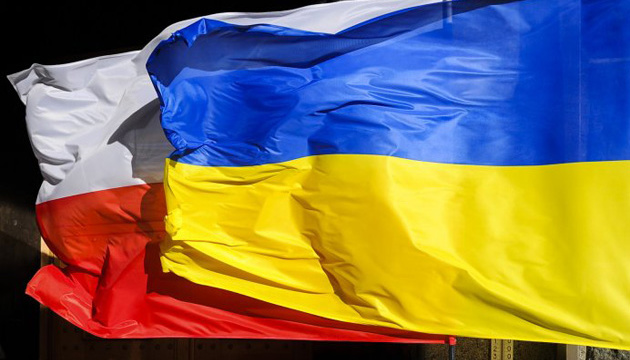
Poland asks to reconsider ban on imports of agricultural products from Ukraine
The decision to ban the import of goods originating from Ukraine or imported from Ukraine to Poland was made by Warsaw without consulting the business community, which affects not only Ukrainian but also Polish businesses.
This statement was made by the Polish-Ukrainian Chamber of Commerce (PUCC) in Warsaw, which noted that it was "shocked" by the content of the order of the Minister of Development and Technology of Poland in this case, Ukrinform reports.
"We appeal to the government to check the decision and initiate urgent consultations with the business community and the public. Only through dialogue can we develop more balanced solutions, taking into account the interests of Polish farmers and the dramatic situation in Ukraine," the Chamber said in a statement.
As noted, the Polish-Ukrainian Chamber of Commerce asked its members to express their opinions, based on which conclusions and recommendations will be presented to the Minister.
"The introduction of the ban on imports was not preceded by consultations, and it also affects Polish entrepreneurs who import products that are then exported to other markets," emphasized Jacek Piechota, President of the PUCC and former Minister of Economy of Poland.
As an example, he cited honey imported from Ukraine, which is one of the products listed in the resolution. It is noted that honey imports from Ukraine to the EU amounted to 54,800 tonnes in 2020, and 53,800 tonnes in 2021, while during the war, this figure fell sharply and amounted to 43,900 tonnes. As of April 1, 2023, it amounted to 10,500 tonnes, which is 2,800 tonnes less than in the previous year.
"The key in this context is the fact that honey imports from Russia are not banned," the Chamber emphasizes in its statement.
As noted, over the weekend, a Polish trader faced the consequences of these rules. His containers of honey, which were heading to the port of Gdansk and then to the United States, were blocked at the Polish-Ukrainian border. Another example of an unclear decision is the inclusion of Ukrainian wine, whose share in the Polish market remains negligible, in the list of banned products. In addition, the Chamber notes that in the period from January to May 2022, the value of agri-food imports from Russia to Poland amounted to 178 million euros, which is 48% more than a year earlier.
Polish entrepreneurs also express concern about the ban on soybean imports from Ukraine, given the significant shortage of this raw material on the Polish market, which has so far been compensated for by imports from Ukraine and further processing on the Polish market. It is estimated that the scale of the need for imports is about 500,000 tonnes. Lack of access to this raw material for many factories producing feed and soybean products will mean that the production cycle will be interrupted. It is emphasized that unilateral actions on trade by an EU member state should be met with a response from the European Commission.
"Problems that were previously overlooked today mean disproportionate solutions. We call on the government to hold substantive consultations. As a logistics hub for Ukraine, Poland has become its largest window to the world after the blockade of the Black Sea ports. This means the need to optimize customs, veterinary and phytosanitary control measures and determine solidarity terms of trade, rather than imposing bans on Ukrainian goods that can be imported from Russia at the same time," said Dariusz Szymczykha, Vice President of the PUCC, in a statement.
As the agency reported, on April 15, the order of the Minister of Development and Technology of Poland banning the import of agricultural products from Ukraine came into force. The document introduces a ban until June 30 on the import of a wide range of Ukrainian products, including grain, fruits, vegetables, meat, sugar, honey, wine, etc.
The European Commission considers unilateral trade decisions by Poland and other neighbors of Ukraine, which have banned imports and transit of Ukrainian grain and other agricultural products, unacceptable.
For the second day in a row, Ukrainian and Polish government delegations have been holding talks in Warsaw to find ways out of this crisis.
